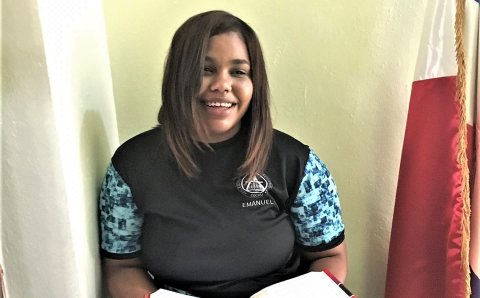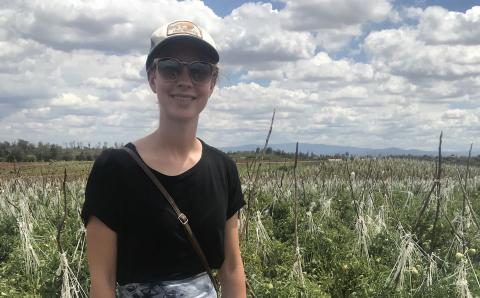Enough Trouble
While I appreciate Syd Hielema’s article grappling with anxiety (“Enough Trouble,” June 2019), I am disappointed that it did not mention medication or therapy. I worry that readers will take away from the article that prayer is the solution to anxiety. Bullet point four reads, “Paul promises that the prayer of the anxious person will lead to peace.” I would hate for a person in the grip of debilitating anxiety to not seek treatment because they believe that prayer will heal them. That’s like saying a person with cancer shouldn’t seek treatment because God is the great physician. I believe that God’s grace and peace also come in the form of medication and therapy.
>> Elizabeth Recker // Grand Rapids, Mich.
Black Dog
Theresa Miedema gave us incredible insight into the soul of depression (“Me and the Black Dog,” May 2019). Thank you, Theresa, for your candid and honest description and feelings. Thank you for your insights on how we can show Christian love to people who are ill with depression. May it make all of us more aware and compassionate.
>> Joyce Steen // Suttons Bay, Mich.
Easter Breakfast
I was sipping my coffee on Easter morning and reading my Banner. There was the wonderful article authored by Charlotte Otten (“Easter Breakfast,” April 2019)! It was beautifully written in a gentle, thoughtful, even whimsical way. I was transported to those days of the first Easter. I captured a new and transforming vision of the power and significance of that momentous day. Thank you, Charlotte, for your skillful and poignant way of revealing more of the real meaning of Easter!
>> William K. Stob // Hobe Sound, Fla.
Saving Face
The disrespect that is so evident in today’s culture claims one disaster after another (“Saving Face,” May 2019). To be sure, honoring God, life, and others is not only biblical but a desirable environment for the future generations. As Christians, we need not only to demand respect but to model it. Hopefully the article can "arouse in us a fresh urgency" to speak up for honoring all of God’s creation.
>> Maxine Stiemsma // Rock Valley, Iowa
Work of Justice
I was extremely disappointed by the glaring omission of the injustice done to the unborn (“The Ordinary Work of Justice,” May 2019). (It says,) “(M)ishpat is what needs to be done in a given situation if things are to be restored to tsedek (rightness) so that everyone can flourish. ... For God’s people justice is making sure everyone has what they need to flourish.”
Should we not be MOST concerned about babies being denied any opportunity to flourish? Abortion at any time during pregnancy is killing a human being—a unique individual—made in God’s image.
Where are your articles about the greatest injustice being done to our most innocent children?
>> Carmen Reitsma // New Sharon, Iowa
Vocation vs. Calling
I read with interest (“Big Questions,” April 2019) how vocation and calling are used interchangeably in the article written by Douglas J. Schuurman.
It is my understanding that we are called to be Christians and serve our Lord and Savior, Jesus Christ, 24 hours a day.
Our vocations are not about who we are, but what we do to earn a living for our families. If we combine the two, then when we are done with our vocation for the day or the week, we may no longer feel the need to be God’s hands and feet, and we feel we can resort to selfish activities that do not serve our Lord.
If we confuse the two, when we lose our jobs (vocations) we still have our calling to show us that God has a plan for us for our own good, even if it means changing vocations. (I have personally experienced this on more than one occasion.)
>> Larry Hoekstra // Hull, Iowa
Restorative Justice
Although the criminal justice system might first come to mind when thinking of restorative justice (“Restorative Justice: A Better Way,” June 2019), the principles have been expanded into a larger discipline known as restorative practices. The International Institute of Restorative Practices offers training and graduate degrees in a model that can be used beyond criminal justice or when harm has been done. It offers a way to live and be together in community that honors and engages each unique person. From daily living together to making decisions to having difficult conversations, as well as responding when harm has been done, the science of restorative practices has a lot to offer churches.
>> Bonnie Nicholas // online comment
Intellectual Pride
Mr. Chong, in his editorial “Intellectual Pride” (May 2019), writes about a bout with depression that came as a result of his pride. For people who suffer from mental illnesses, and especially for those prone to mood swings, head knowledge may prove to be a spiritual anchor to sanity, in that if people doubt their salvation because they hear voices or they have the combined effect of schizophrenia and bipolar disorder, they cannot trust their state of mind for assurance of salvation. For such people, trusting in what the Bible and our traditions teach is the only way to rest in peace even while alive on this side of heaven.
>> Michele Gyselinck // Montreal, Quebec
Church Programming
About seniors/retirees feeling left out at church (“Big Questions,” May 2019): Two years ago, some seniors got together to see what we could do. We started with a potluck one summer day at one of our senior’s homes and passed a sheet around to write down what we would like to do as a group. We have gone on day trips, (had) coffee socials at church with hymn sings, and (played) games, plus (had) pizza, potlucks, and picnics in the park. We also have bus trips for the day. Christmas dinner with devotions and poems. We get together once a month, have four couples who plan and phone everyone, and it is going very well.
>> Jessie Jonkman // Wyoming, Ont.







